Imagine the freedom of exploring the open road, the comfort of having your own space, and the excitement of discovering new destinations – the RV life is truly an adventure! However, with great adventure comes great responsibility. Ensuring your safety and the safety of those around you is paramount. Are you ready to learn what are the best safety practices to prevent common RV accidents and enjoy a worry-free journey? Let’s dive in!
Key Takeaways
- Gain knowledge of RV dimensions, weight distribution & handling characteristics for safe driving.
- Maintain regular maintenance and inspection of tires, brakes, engine & transmission.
- Practice safe driving habits. Be prepared with emergency contacts and insurance coverage.
Understanding Your RV
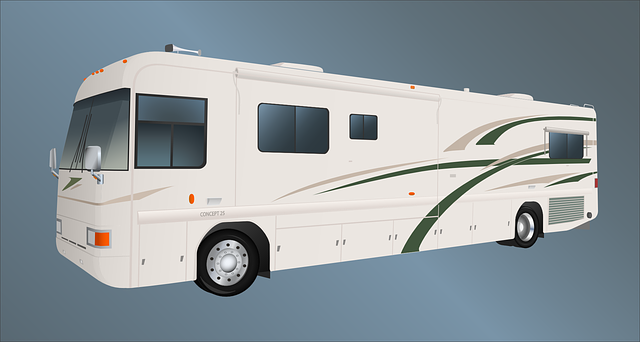
Embarking on an RV journey begins with understanding your “home on wheels.” Thorough knowledge of your RV’s dimensions, weight distribution, and handling characteristics is key to accident prevention and safe traveling. After all, an RV is not just a larger version of a regular car; it requires specialized knowledge and skills to operate safely.
We’ll delve into these aspects further.
Know Your Dimensions
The first step to safe RV driving is being aware of your vehicle’s dimensions. Being aware of the height, length, and width of your RV helps you avoid low-clearance bridges, tight turns, and other obstacles that could potentially cause accidents. Familiarizing yourself with the dimensions of your specific RV type, whether it’s a Class A, B, or C motorhome, helps you navigate the roads with confidence.
Being mindful of your RV’s dimensions also impacts its maneuverability on the road. For example, longer RVs have more tail swing, making them harder to maneuver in narrow spaces or when making U-turns. By understanding your vehicle’s dimensions, you can plan routes that accommodate these challenges, helping to prevent common causes of RV accidents.
Weight Distribution
Maintaining an appropriate weight distribution in your RV is vital for stability, handling, and preventing issues like tire blowouts or suspension problems. An overloaded RV can be dangerous, affecting not only your vehicle’s performance but also the safety of other drivers on the road. To maintain a proper weight distribution, adhere to the gross vehicle weight ratings (GVWR) for your RV and any towed vehicles.
Regularly inspecting your RV’s tires, awnings, and other components can help ensure a safe journey. When loading your RV, distribute weight evenly and avoid placing too much weight on one side or at the front or rear of the vehicle. This will help maintain stability, especially in windy conditions, and reduce the risk of accidents caused by poor weight distribution. Don’t forget to check your tires RV awnings as well, as they play a crucial role in your overall safety.
Handling Characteristics
Grasping your RV’s handling characteristics is integral to safe driving. Terms like “off-tracking” and “rear overhang” might not be familiar to you if you’ve only driven passenger cars before, but they’re essential for RV safety. Knowing how your RV handles in various driving conditions, such as high winds, steep inclines, and tight turns, can improve your control and overall safety.
Maintaining an adequate stopping distance is also critical to avoid collisions. Due to increased blind spots, changing lanes in an RV can be more challenging than in a car. Familiarizing yourself with the following will significantly enhance your driving capabilities and safety, preventing common RV accidents:
- Off-tracking
- Rear-overhang
- Wheel cut
- Wheelbase
Regular Maintenance and Inspection
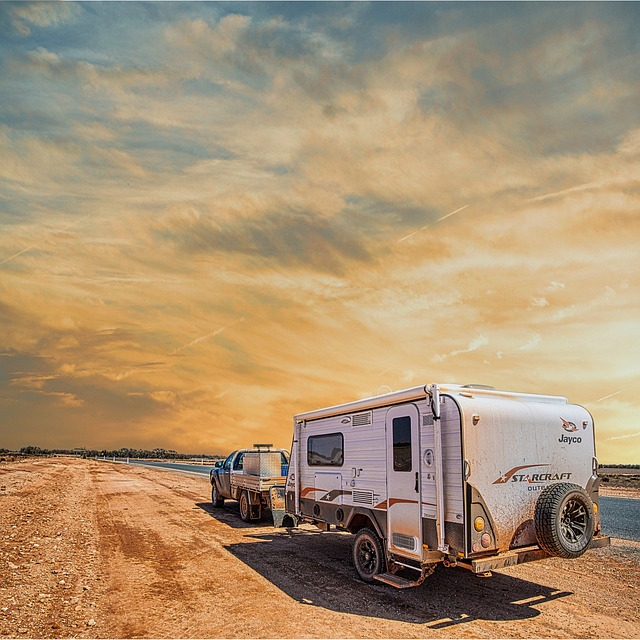
As with any vehicle, diligent maintenance and inspection of your RV’s:
- Tires
- Brakes
- Engine
- Transmission
Regular maintenance and inspection of your passenger car contribute significantly to smooth and safe travels. By staying on top of these tasks, you can prevent accidents and costly repairs down the road.
We’ll discuss the key components that need regular attention.
Tire Maintenance
Maintaining your tires properly is crucial in preventing blowouts and excessive wear, thereby reducing the risk of accidents. Here are some crucial steps in tire maintenance:
- Regularly checking tire inflation pressure
- Replacing old tires
- Covering them when idle
- Adhering to the manufacturer’s recommended servicing schedule for your RV tires
Following these steps can help ensure the longevity and safety of your tires.
Tire blowouts can happen unexpectedly, so having a spare RV tire and the necessary tools to change it is important for emergency preparedness. By regularly inspecting your tires and maintaining the correct tire pressure, you can help ensure a safe and enjoyable RV trip.
Brake System
The brake system is a critical component of your RV’s safety. Frequent inspection and maintenance of your RV’s brake system are vital in ensuring optimal stopping power and reducing the risk of accidents. The brake system consists of various components like:
- The compressor
- The governor
- The airlines
- The air drum brakes (for air brake systems)
- The pump
- The valves
- The rotor
- The brake pads
- The drums (for hydraulic brake systems)
It is recommended that RV brake systems be inspected and serviced at least once a year. Regular brake system inspections can help identify potential issues early, preventing accidents and ensuring a safe journey for everyone on the road.
Engine and Transmission
Ensuring your RV’s engine and transmission are in good working condition is key in avoiding breakdowns and accidents. Regular maintenance and inspections not only ensure a smooth ride but also help extend the life of your RV’s engine and transmission components. It is recommended to inspect your RV’s engine and transmission at least twice a year or every 6,000 miles, whichever comes first, for optimal performance.
In addition to regular maintenance, be aware of any signs of engine and transmission problems, such as:
- leaking fluid
- transmission slipping
- burning smell
- unusual noises
Addressing these issues promptly can help prevent more significant problems down the road and keep your RV running smoothly.
Safe Driving Practices
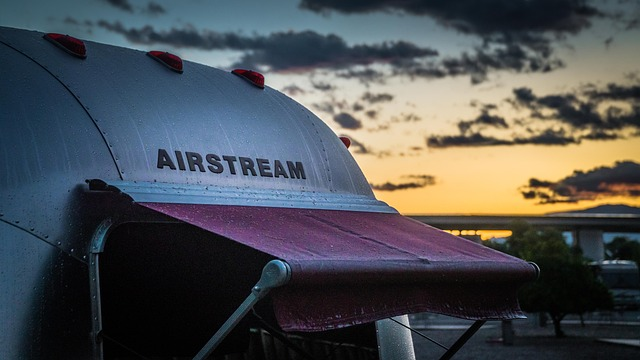
Implementing safe driving practices is essential in preventing RV accidents and ensuring the safety of you and your passengers. Managing your speed, maintaining a safe following distance, and executing proper lane changes and merging are all essential aspects of safe RV driving.
We’ll examine these practices further to bolster your confidence in navigating the open road.
Speed Management
Adhering to a safe speed and respecting the speed limit while operating your RV is key to preventing accidents and enhancing fuel efficiency. The design of your RV, road conditions, wind and other weather elements, and the weight of your RV should all be taken into account when determining a safe speed. As a general rule, it is recommended not to exceed 60 miles per hour when operating a motorhome or towing an RV.
Driving at slower speeds not only helps prevent accidents but also allows you to better enjoy the scenery and experience of RV travel. Remember, the journey is just as important as the destination, so take your time and drive safely.
Following Distance
Extending your following distance while driving an RV is critical to provide ample stopping time and avoid rear-end collisions. The size and weight of an RV can significantly affect its stopping distance, so it’s essential to maintain a greater following distance than you would in a standard car. As a general guideline, it is recommended to maintain 1 second of distance for every 10 feet of vehicle length.
By allowing for a greater following distance, you give yourself more time to react to sudden changes in traffic or road conditions, reducing the risk of accidents and ensuring a safe journey for everyone on the road.
Lane Changes and Merging
Performing safe lane changes and merges is crucial in preventing RV accidents. Due to increased blind spots, changing lanes in an RV can be more difficult than in a car. To execute a safe lane change or merge, use your turn signals, check your blind spots, and be aware of other vehicles on the road.
It’s also important to remember that RVs take longer to accelerate and decelerate than smaller vehicles, so give yourself ample time and space when merging onto highways or switching lanes. By being mindful of these factors, you can navigate the roads confidently and safely in your RV.
Weather Awareness and Route Planning
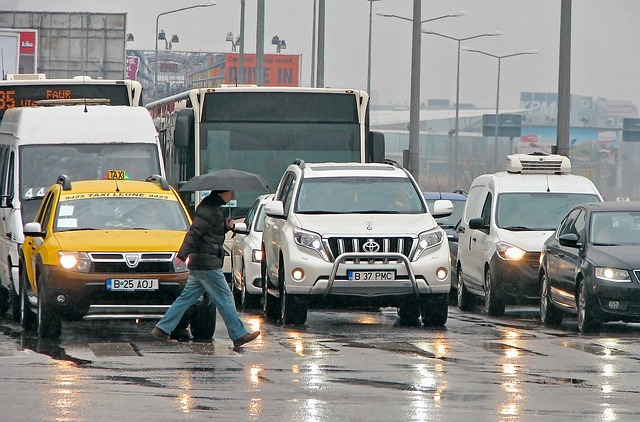
Weather significantly impacts RV safety; staying informed about weather conditions and adjusting your route accordingly can aid in accident prevention. Regularly checking weather forecasts and planning for safe routes can go a long way in ensuring a smooth and secure RV journey.
We’ll delve into strategies for staying weather-aware and planning your route effectively.
Check Weather Forecasts
Regularly checking weather forecasts for your starting area, destination, and travel routes can help you avoid hazardous conditions such as heavy rain or storms. Staying informed about the weather can not only help you avoid dangerous situations but also help you adjust your route or travel plans if needed.
There are many reliable sources for obtaining accurate and up-to-date weather forecasts, such as:
- MyRadar Weather Radar app
- Drive Weather app
- RV Weather app
- AccuWeather app
- Google Maps for real-time weather updates along your route
By staying informed about weather conditions, you can make better decisions regarding your route and travel plans, ensuring a safer and more enjoyable RV journey.
Plan for Safe Routes
Planning your route with safety as a priority is key to a smooth and secure RV trip. This involves avoiding congested areas, low-clearance bridges, and tight turns that could lead to hazardous situations, such as rvs hitting bridges. By carefully planning your route, you can avoid potential obstacles and minimize the risk of accidents.
Using tools like:
- RV Trip Wizard
- AllStays
- Roadtrippers
- KOA Trip Planner
can help you plan a safe and enjoyable route for your RV journey. These trip planning resources can help you find suitable routes, avoid potential hazards, and ensure you reach your destination safely.
Adapt to Changing Conditions
Weather conditions can change rapidly, and it’s essential to be prepared to adapt your driving and route to accommodate these changes. For example, slowing down in high winds or seeking shelter during severe storms can help ensure a safer RV journey.
Being flexible and prepared to adjust your route or travel plans based on changing weather conditions is an essential aspect of RV safety. By staying informed about the weather and being willing to adapt, you can help prevent accidents and enjoy a smooth and secure RV journey.
Emergency Preparedness

Paragraph 1: No matter how well-prepared you are, emergencies can still happen. Preparing for emergencies with:
- First aid supplies
- Safety equipment
- Roadside assistance
- Emergency contacts
Stopping at a gas station can mitigate motor vehicle accidents and bolster RV trip safety, especially for passenger vehicles. Embracing the RV lifestyle also means prioritizing safety on the road. For more RV safety information, consider researching safety tips or for a comprehensive RV safety information visit, check out our website.
Paragraph 2: We’ll delve deeper into each aspect of emergency preparedness.
First Aid and Safety Equipment
Having a well-stocked first aid kit and safety equipment on hand is vital for managing emergencies during your RV journey. Your first aid kit should include items like bandages, gauze pads, adhesive tape, antiseptic cream, and alcohol wipes. In addition to a first aid kit, keep essential safety equipment like fire extinguishers, reflective triangles, and an emergency survival kit in your RV.
Regularly inspecting and updating your first aid kit and safety equipment ensures that you’ll be prepared for any emergency situation that may arise during your RV trip. By being prepared, you can help ensure the safety and well-being of yourself and your passengers.
Roadside Assistance
Roadside assistance is a fundamental service for every RV traveler. Breakdowns and accidents can happen at any time, and having access to roadside assistance services can provide peace of mind and help get you back on the road quickly. Roadside assistance can cover services such as:
- Towing
- Flat tire repair
- Fuel delivery
- Battery charging
- Lock-out assistance
There are several reputable roadside assistance programs available for RVs, such as:
- Good Sam RV Road Assistance
- Coach-Net
- AAA Plus RV
- Progressive Roadside Assistance
- Escapees Roadside Assistance
Consider subscribing to a roadside assistance program that best suits your needs and travel plans, ensuring you have the support you need in case of an emergency.
Emergency Contacts
For any RV traveler, it’s crucial to have a list of emergency contacts readily available. This list should include family members, friends, and local authorities who can be called for help in case of an accident or emergency. In addition to personal contacts, it’s also a good idea to have the contact information for Traveler’s Assistance (1-800-334-4110) and your roadside assistance provider readily available.
By keeping emergency contacts handy, you can quickly and efficiently get the help you need in case of an emergency during your RV journey. This can save valuable time and ensure that you and your passengers receive the assistance you need.
Driver Education and Training

Investment in driver education and training can significantly reduce the risk of RV accidents. By improving your driving skills and knowledge of safe RV operation, you’ll be better equipped to handle any situation you may encounter on the road. There are several reputable RV driving courses and training programs available, such as RV Basic Training, RV Driving School, and FMCA RV Driving School.
In addition to formal training, practicing in a safe environment and using RV driving simulators can further enhance your driving skills. The more experience and knowledge you gain, the more confident and safe you’ll be behind the wheel of your RV.
Staying Alert and Focused
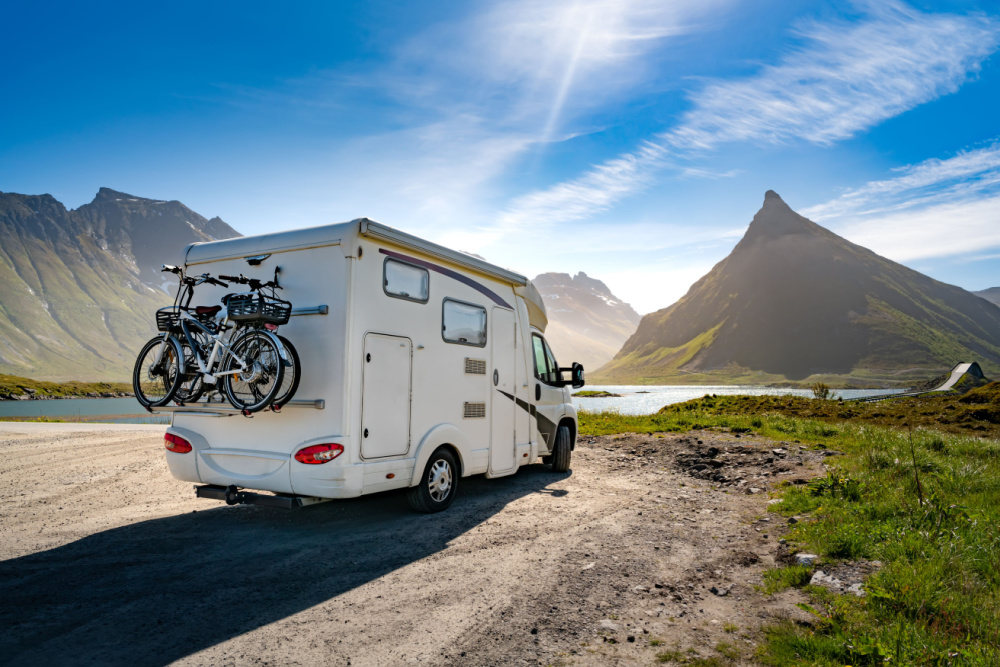
Maintaining alertness and focus while driving your RV is vital in preventing accidents caused by fatigue, distraction, or impaired driving. To avoid driving distractions, make sure to avoid activities such as texting while driving, relying too heavily on navigation systems, or attempting to reach items from the back of the RV while driving.
Fatigue can also be a significant factor in RV accidents. Make sure you get enough rest before hitting the road, and take regular breaks during your journey to stay alert and focused. By staying attentive and well-rested, you can help prevent accidents and ensure a safe and enjoyable RV experience for all.
Secure Your RV and Belongings

Securing your RV and belongings forms a critical part of RV safety. Properly storing and securing items inside your RV can help prevent accidents caused by unsecured items shifting during travel. Additionally, securing your RV’s doors, windows, and storage compartments can help protect against theft and vandalism.
To ensure the security of your RV and belongings, invest in high-quality locks for your doors and storage compartments, and consider installing a security camera system for added protection. By taking these precautions, you’ll have peace of mind knowing that your RV and belongings are safe and secure during your travels.
Insurance and Legal Considerations

Holding adequate insurance coverage and comprehending legal considerations can safeguard you financially and legally in the event of an RV accident. It’s important to check your vehicle insurance before you start your RV trip. Make sure it covers the RV or if separate RV insurance or road service coverage is needed..
In addition to insurance, it’s essential to be aware of any legal considerations or restrictions that may apply to your RV trip, such as parking restrictions or local laws related to RV travel. By staying informed and prepared, you can help ensure a safe and hassle-free RV journey.
Summary
Embarking on an RV journey is an exciting and rewarding experience, but it also comes with great responsibility. By understanding your RV’s dimensions, weight distribution, and handling characteristics, performing regular maintenance and inspections, adopting safe driving practices, being aware of weather conditions, planning your route, being prepared for emergencies, investing in driver education, staying alert and focused, securing your RV and belongings, and having proper insurance coverage, you can help prevent accidents and ensure a safe and enjoyable RV adventure. Now, it’s time to hit the open road and create unforgettable memories!
Frequently Asked Questions
How can drivers minimize their risks when sharing the roadways with RVs?
To minimize risks when sharing the roadways with RVs, stay out of their blind spots, don't follow too closely, watch for right turns, don't cut them off, and let them into traffic. Always anticipate the worst and avoid traveling alongside an RV as you are approaching.
Which of the following is a cause of RV accidents?
Excessive speed and driving too fast for conditions are two of the most common causes of RV accidents.
How safe are RVs in a crash?
RVs generally do not have a good crashworthiness rating and in a serious collision, can cause items to come flying around even if the cabinets remain intact. However, on average, RV fatalities only make up a third of the average fatality rate of all vehicles, making them relatively safe in a crash.
Which RV class is safest?
Class B campervans and motorhomes are generally considered to be the safest RV class for travel.
What are some common causes of RV accidents?
Excessive speed, inadequate driving skills, tailgating, driving in windy conditions, exceeding the vehicle's weight capacity, and operating the vehicle while distracted, fatigued, or under the influence are all common causes of RV accidents.

